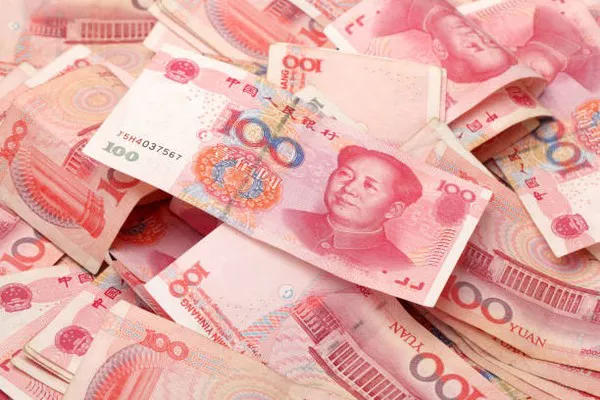In the realm of global finance, the question of whether the Chinese yuan will replace the US dollar as the world’s primary reserve currency has been a topic of considerable debate. This article delves into various aspects surrounding this issue, examining historical dominance, China’s economic rise, current status of the yuan, challenges, expert opinions, implications for investors, potential scenarios, and strategic considerations for stakeholders.
Historical Dominance of the US Dollar
The US dollar has reigned supreme as the world’s reserve currency since the end of World War II. This dominance stems from various factors, including the post-war economic boom in the United States, the establishment of the Bretton Woods system, and the unparalleled strength of the American economy. The dollar’s status as the primary medium of international trade and investment has been further solidified by the stability of the US political system, the depth and liquidity of US financial markets, and the widespread acceptance of the dollar as a global store of value.
China’s Economic Rise
Over the past few decades, China has experienced unprecedented economic growth, transforming itself into the world’s second-largest economy. This rise has been fueled by a combination of factors, including rapid industrialization, globalization, and government-led economic reforms. As China’s economic clout has expanded, so too has its ambition to internationalize its currency, the yuan, and challenge the dominance of the US dollar.
Trade and Reserve Currency Status
The status of a currency as a reserve currency is closely linked to its role in international trade and finance. The US dollar’s dominance as the world’s primary reserve currency is largely a result of its widespread use in trade transactions and its status as the preferred currency for central banks’ foreign exchange reserves. This gives the United States significant influence over global financial markets and allows it to finance its deficits relatively easily.
Current Status of the Yuan
In recent years, China has taken significant steps to promote the international use of the yuan. These efforts include the establishment of offshore yuan clearing centers, the expansion of yuan-denominated trade and investment channels, and the inclusion of the yuan in the International Monetary Fund’s Special Drawing Rights basket. While these initiatives have increased the yuan’s presence in global finance, it still lags far behind the US dollar in terms of usage and acceptance.
Challenges and Barriers
Despite China’s economic prowess, the yuan faces several significant challenges in its quest to replace the US dollar. These include concerns about the stability of China’s financial system, restrictions on capital flows, lack of transparency in monetary policy, and the absence of fully convertible capital accounts. Moreover, the entrenched position of the US dollar in global finance, along with the network effects and inertia associated with using a particular currency, pose formidable barriers to the yuan’s ascent.
International Agreements and Policies
Recent international agreements and policy shifts have the potential to influence the yuan’s status as a global reserve currency. For instance, China’s Belt and Road Initiative aims to promote the use of the yuan in trade and investment along its routes, while initiatives such as the Chiang Mai Initiative Multilateralization and the Asian Infrastructure Investment Bank provide avenues for regional financial cooperation outside the traditional Western-dominated framework.
Expert Opinions and Economic Forecasts
Economists and financial experts offer a range of opinions on the likelihood and timeline for the yuan to replace the US dollar. Some believe that the yuan could gradually gain prominence as China’s economy continues to grow and the country further opens up its financial markets. Others argue that the structural advantages enjoyed by the US dollar, coupled with China’s own internal challenges, will prevent any significant shift in the near term.
Implications for Investors and Markets
A potential shift from the US dollar to the yuan would have profound implications for investors and global markets. Investors would need to diversify their portfolios to mitigate currency risk, while central banks and sovereign wealth funds may reconsider the composition of their foreign exchange reserves. Financial markets could experience increased volatility as participants adjust to a new monetary landscape, with winners and losers emerging across different sectors and geographies.
Potential Scenarios
There are several potential scenarios in which the yuan could gain dominance as a global reserve currency. One possibility is a gradual transition driven by China’s continued economic growth and internationalization efforts. Alternatively, a sudden geopolitical or economic event, such as a major crisis in the United States or a significant breakthrough in China’s financial liberalization, could accelerate the yuan’s ascent. However, such scenarios are fraught with uncertainty and could entail significant risks and disruptions.
Strategic Considerations for Stakeholders
Businesses, governments, and individuals must carefully consider their strategic responses to a potential shift in currency dominance. For businesses engaged in international trade and investment, understanding and managing currency risk will be paramount. Governments may need to adapt their monetary and fiscal policies to navigate the changing global financial landscape. Individuals should diversify their savings and investments to hedge against currency fluctuations and geopolitical uncertainties.
See Also What is the CNY Pegged to?
In conclusion, while the Chinese yuan has made significant strides in recent years, replacing the US dollar as the world’s primary reserve currency remains a formidable challenge. While there are compelling economic and geopolitical reasons to consider such a shift, numerous barriers and uncertainties stand in the way. As such, stakeholders must approach this issue with caution and foresight, recognizing both the opportunities and risks inherent in a potential transition.


